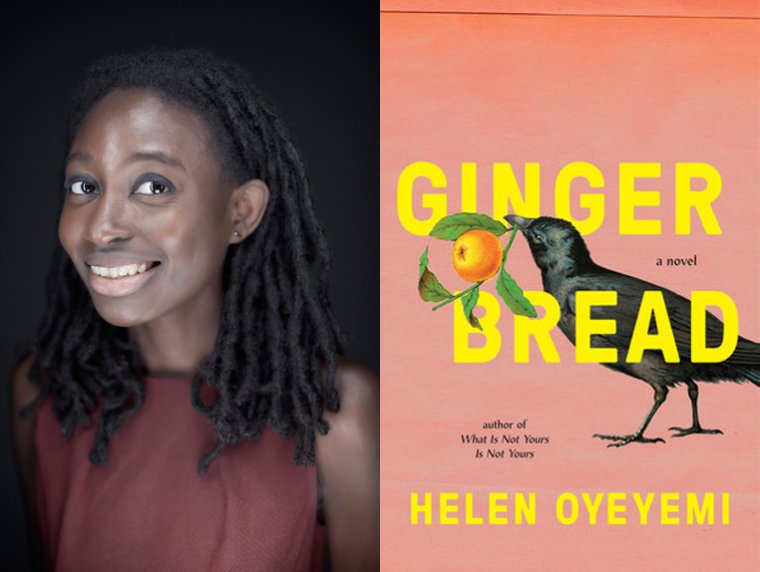This week’s installment of Ten Questions features Helen Oyeyemi, whose novel Gingerbread is out today from Riverhead Books. The story of three generations of women and the legacy of the Lee family’s famed gingerbread recipe (“devised by a person who became Harriet Lee’s great-great-great grandmother by saving Harriet’s great-great-great grandfather’s life”) Gingerbread follows its characters through encounters with jealousy, ambition, family grudges, work, wealth, and real estate. Ron Charles of the Washington Post calls the novel “a challenging, mind-bending exploration of class and female power heavily spiced with nutmeg and sweetened with molasses.” Helen Oyeyemi is the author of the story collection What Is Not Yours Is Not Yours, winner of the PEN Open Book Award, along with five novels—most recently Boy, Snow, Bird, which was a finalist for the 2014 Los Angeles Times Book Prize. She received a 2010 Somerset Maugham Award and a 2012 Hurston/Wright Legacy Award. In 2013 she was named one of Granta’s Best Young British Novelists.

Helen Oyeyemi, author of Gingerbread. (Credit: Manchul Kim)
1. How long did it take you to write Gingerbread?
About six months—two of them mostly fuelled by Honey Butter Chip consumption, and I think if those first two months were measured out in terms of daily portions of Honey Butter Chips recommended for a healthy lifestyle, that would adjust the writing time to six or seven years.
2. What was the most challenging thing about writing the book?
Getting started. I feel like I always say that, but this time around there were four false starts as opposed to the usual one or two.
3. Where, when, and how often do you write?
For some reason during my first reading of this question my brain added an additional word: ‘why’ do I write as part of the question...how scary. I usually write in bed, daily, until I’ve finished writing the book. But a good portion of Gingerbread was written sitting on the floor, in a chair with no legs but excellent back support, with a very low standing desk for my laptop. I’m still not sure what it was about the posture and the position that made some act of imaginative grace feel more possible—and I’m not saying I ended up pulling any off—but it might work for others, so I’d recommend it.
4. What was the most unexpected thing about the publication process?
How pretty the finished copy of the book looks, and how good it is to hold.
5. What are you reading right now?
I just finished Carleton Bulkin’s quicksilver-fine translation of Vladislav Vančura’s Marketa Lazarová, and you should read it too! It’s difficult to describe the narrative tone—tones, really—but this book’s combination of earthiness, the sublime, the infernal, and the wryly metafictional is the most involving I’ve come across in a while.
6. Which author, in your opinion, deserves wider recognition?
Kuzhali Manickavel! Prose like a thrown knife with gossamer wings. Funny, tender, piercing, marvelous.
7. What is one thing you’d change about the literary community and/or the publishing business?
I don’t see either as being in stasis; I suppose the best you can hope for are that the changes are the ones necessary for continued survival.
8. What is the biggest impediment to your writing life?
The thought of having to explain what I’ve done. Or have what I’ve done explained to me, ahhhhh.
9. What trait do you most value in an editor (or agent)?
An acute sense of the absurd.
10. What’s the best piece of writing advice you’ve ever heard?
To pay no attention to writing advice?







